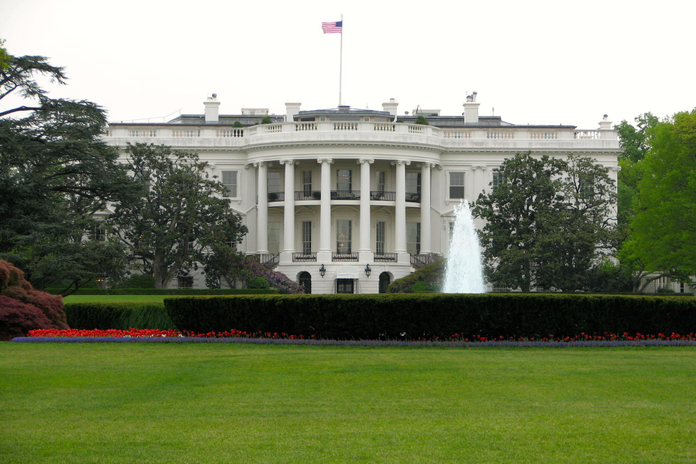The White House is releasing a new memo on Thursday, aiming to connect the extension of Trump-era tax cuts to rising inflation, a critical issue for voters.
The Republican push to extend and deepen the 2017 tax cuts represents “a MAGAnomics economic agenda that would trigger an ‘inflation bomb’ and increase costs for middle-class families,” stated Andrew Bates, White House Senior Deputy Press Secretary, in the memo being shared with reporters and activists. The memo was first provided to Yahoo Finance.
The 2017 tax cuts, signed into law by then-President Trump, have many provisions set to expire at the end of 2025.
On the campaign trail, President Biden has discussed extending parts of the law that benefit Americans earning under $400,000 annually, while allowing other provisions to expire, which would effectively increase taxes on the wealthiest Americans. Republicans argue against potential economic disruption from higher tax rates. They advocate for a full extension of the cuts and are considering additional cuts, such as lowering the corporate tax rate.
Some conservative economists argue that lowering taxes boosts tax revenues through economic growth. While revenues did increase following the 2017 cuts, analyses indicate they did not fully offset the cost of the cuts.
The White House memo also discusses the corporate tax rate, which was lowered to 21% by Trump’s 2017 law. This provision is not set to expire in 2025, but Biden is pushing to raise it to 28%, while Trump aims to reduce it to 15%.
Bates accused Republicans of “protecting corporations that are overcharging Americans and not reducing costs despite record profits.”
New government data released on Thursday showed a $21.1 billion decrease in corporate profits in Q1 2024 after reaching a record high at the end of 2023.
Tax policy remains a unifying issue for Republicans. House Speaker Mike Johnson, in an interview with Semafor, outlined a broad approach to the tax debate, indicating plans to address multiple issues beyond the expiration of the Tax Cuts and Jobs Act.
This stance unites Republicans, even those critical of Trump. In a recent Yahoo Finance interview, former House Speaker Paul Ryan expressed his preference for Trump’s tax policies over Biden’s, despite his personal opposition to Trump.
Ryan, who helped pass the 2017 tax cuts, warned that Biden’s plan could increase taxes on small and medium-sized businesses.
Anticipating the 2025 Tax Debate
This week’s White House memo comes as lawmakers position themselves for next year’s debate on tax policy.
Republicans have indicated plans to use the budget reconciliation process to expedite the issue if Trump wins, requiring a Republican sweep of the House, Senate, and White House this fall. This process has been used in recent years for significant legislative actions.
Reconciliation was the method used to enact the 2017 Tax Cuts and Jobs Act and for the Democrats’ Inflation Reduction Act in 2022.
The new White House memo references economists warning about the financial implications of extending the tax cuts. Columbia University professor Adam Tooze recently noted that Trump’s policies could lead to inflation.
Economists have cautioned that Trump’s broader agenda, from tax cuts to tariffs to immigration proposals, could fuel inflation, though the extent is debated.
An analysis by economists Ryan Sweet and Bernard Yaros of Oxford Economics suggested that a “full-blown Trump scenario” could increase prices by 0.5% to 1% in 2026 and 2027.
“Despite these warnings, House Republican leadership is preparing to extend the Trump tax cuts for the wealthy beyond 2025,” Bates wrote regarding GOP plans.
Budget analysts have provided varying cost estimates for the tax changes. The Committee for a Responsible Federal Budget estimated extending certain parts of the law would cost $4 trillion through 2034.
The Congressional Budget Office has also examined the issue, estimating the cost between $3.5 trillion and $4.6 trillion through 2033, depending on assumptions about spending and revenues.
Some market analysts express concern that new tax cuts and resulting deficits could disrupt markets.
“Trump is the more bearish candidate due to his advocacy for continued tax cuts and expensive programs,” said Bill Gross, a veteran bond investor, in an interview with the Financial Times. He remarked that “Trump’s election would be more disruptive.”
Featured Image: Freepik









